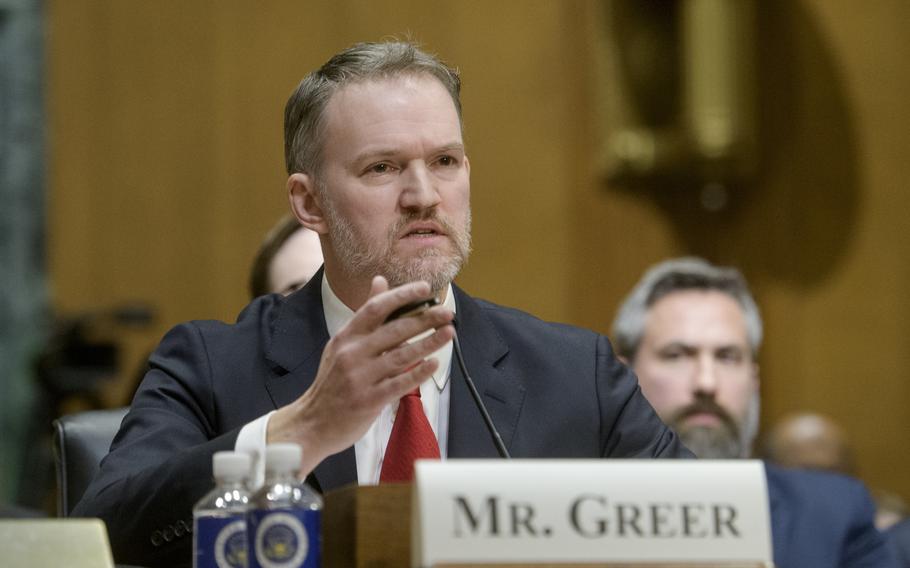
Jamieson Greer, President Donald Trump’s nominee to be United States Trade Representative, with the rank of Ambassador, appears before the Senate Committee on Finance for his pending confirmation on Capitol Hill. (Rod Lamkey/AP)
Chinese trade negotiators will sit down with Treasury Secretary Scott Bessent and U.S. Trade Representative Jamieson Greer in Switzerland this weekend for the first high-level talks aimed at easing tensions in their trade war.
This comes after both sides, feeling the impact of tariffs that are so high they amount to an embargo, have softened their rhetoric in recent days.
China’s Ministry of Commerce said Wednesday that Vice Premier He Lifeng will attend the talks in Geneva later this week.
“On the basis of having fully considered global expectations, China’s interests and the appeals from U.S. industry and consumers, China has decided to engage with the U.S.,” the ministry said in a statement.
Bessent wrote on X that, thanks to President Donald Trump, “the world has been coming to the U.S., and China has been the missing piece.”
“We will meet on Saturday and Sunday to discuss our shared interests. The current tariffs and trade barriers are unsustainable, but we don’t want to decouple,” he wrote. “What we want is fair trade.”
The USTR office said in a statement that Greer would meet with his Chinese counterpart “to discuss trade matters.”
Beijing has remained defiant as Trump has imposed minimum tariffs of 145 percent on Chinese goods. It responded with its own blanket 125 percent levies and restricted exports of key raw materials.
Chinese officials have repeatedly pledged to “fight to the end” and called for the U.S. to remove all tariffs before negotiations could begin.
But Beijing softened that hard-line stance recently after Trump spoke about his hopes of making a deal with Chinese leader Xi Jinping. But it has continued to underscore that China is the aggrieved party and to project itself as a responsible power to the rest of the world.
“Whether it is fighting or talking, China’s determination to safeguard its own development interests will not change, not will its position and goal of defending international fairness and justice,” the commerce ministry statement said. “If the United States wants to solve the problem through negotiations, it must face up to the serious negative impact of unilateral tariff measures on itself and the world.”